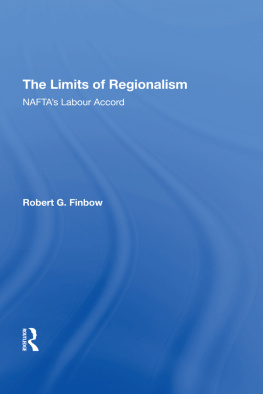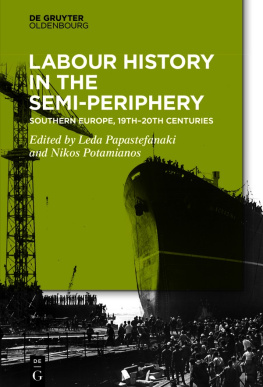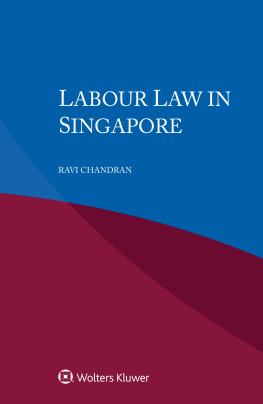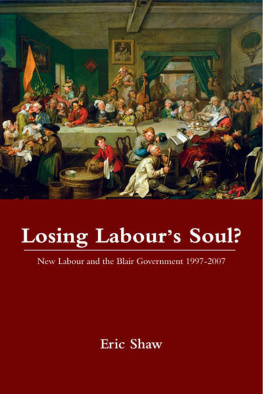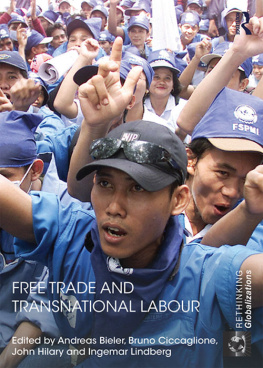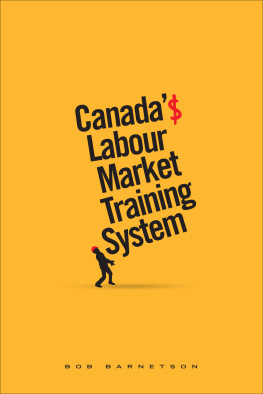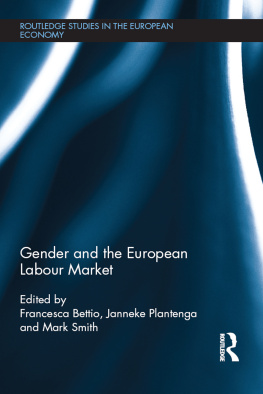The Limits of Regionalism
The International Political Economy of New Regionalisms Series
The International Political Economy of New Regionalisms Series presents innovative analyses of a range of novel regional relations and institutions. Going beyond established, formal, interstate economic organizations, this essential series provides informed interdisciplinary and international research and debate about myriad heterogeneous intermediate level interactions.
Reflective of its cosmopolitan and creative orientation, this series is developed by an international editorial team of established and emerging scholars in both the South and North. It reinforces ongoing networks of analysts in both academia and think-tanks as well as international agencies concerned with micro-, meso- and macro-level regionalisms.
Editorial Board
Timothy M. Shaw, University of London, UK
Isidro Morales, Universidad de las Amricas, Puebla, Mexico
Maria Nzomo, Embassy of Kenya, Zimbabwe
Nicola Phillips, University of Manchester, UK
Johan Saravanamuttu, Science University of Malaysia, Malaysia
Fredrik Sderbaum, Gteborgs Universitet, Sweden
Recent Titles in the Series
Latin Americas Quest for Globalization Edited by Flix E. Martn and Pablo Toral
Exchange Rate Crises in Developing CountriesMichael G. Hall
Globalization and Antiglobalization Edited by Henry Veltmeyer
Asia Pacific and Human Rights Paul Close and David Askew
Twisting Arms and Flexing Muscles Edited by Natalie Mychajlyszyn and Timothy M. Shaw
First published 2006 by Ashgate Publishing
Reissued 2018 by Routledge
2 Park Square, Milton Park, Abingdon, Oxon OX14 4RN
711 Third Avenue, New York, NY 10017, USA
Routledge is an imprint of the Taylor & Francis Group, an informa business
Robert G. Finbow 2006
Robert G. Finbow has asserted his moral right under the Copyright, Designs and Patents Act, 1988,to be identified as the author of this work.
All rights reserved. No part of this book may be reprinted or reproduced or utilised in any form or by any electronic, mechanical, or other means, now known or hereafter invented, including photocopying and recording, or in any information storage or retrieval system, without permission in writing from the publishers
A Library of Congress record exists under LC control number: 2006018447
Notice:
Product or corporate names may be trademarks or registered trademarks, and are used only for identification and explanation without intent to infringe.
Publishers Note
The publisher has gone to great lengths to ensure the quality of this reprint but points out that some imperfections in the original copies may be apparent.
Disclaimer
The publisher has made every effort to trace copyright holders and welcomes correspondence from those they have been unable to contact.
ISBN 13: 978-0-815-39794-6 (hbk)
ISBN 13: 978-1-351-14616-6 (ebk)
This book is dedicated to my loving wife, Katherine, who inspired my interest in Mexico, assisted with translation and acculturation, and showed endless patience with this interminable distraction from our young family. It is also dedicated to my two boys, Gregory and Bobby, who also shared in the time sacrifice and who embody the hope of transnational harmony.
This study originated in the authors comparative research on social policy in Canada and the UnitedStates, which employed neo-institutional perspectives to account for policy variations in industrial relations and social policy. It was natural to expand this research to North America as a whole with the advent of free trade. My extensive travels in Mexico with mywife inspired a search for ways of promoting mutually beneficial exchange as economic integration proceeded. It was difficult to accept portrayals of the NAFTA as a zero-sum game where Mexican labour would benefit at the expense of Canadian and American workers, or to perceive North American critics of NAFTA as entirely altruistic in their motives. But on the other hand, witnessing the common negative effects of liberalization on working people and the unemployed in all three countries, it became clear that the rosy predictions of benefits from trade and investment liberalization were either unintentionally exaggerated or manipulatively misleading. So an assessment of the effectiveness of social elements of the NAFTA became imperative.
Mexicos desire to benefit from comparative advantages in labour costs conflicts with Canadian and American workers desire to avoid further weakening of unionism and the welfare states, with the progression of transnational integration and technological changes towards a post-Fordist flexible production paradigm. It is difficult to balance the benefits of free commerce with the needs ofworking people, to develop freer trade which is also socially equitable. NAFTA is a unique case study of the new regionalism across the North South divide, where divisions over labour rights are even more pronounced. As a scholar sympathetic to workers welfare and with a family rooted on both sides of the continental divide, it was important to seek answers to these dilemmas, to discovermeans of encouraging free trade to proceed in ways which redounded broadly to citizens welfare, not solely to corporate profitand elite enrichment. As the project unfolded, the prospects for finding such positive solutions appeared disappointingly minimal, especially given competition from China and post-9-11 disruptions to transborder regionalization. Above all, there is no easy compromise between Mexican concerns over protectionism and market access, and North American fears of social dumping.
At the same time, the North American Agreement on Labour Cooperation created a unique opportunity to assess the impact of new regional, transnational institutions on trinational social constituencies. While social links across borders were too weak to challenge the multinational consensus in favour of free trade and investment flows, the NAFTA labour accord created a new opportunity for labor and allied groups to connect across the North-South divide. However, these new institutions were used slowly, and I felt unable to provide a firm assessment for some years, after enough submissions and cooperative activities produced a critical mass. While research materials mounted and conference papers grew stale, administrative tasks at Dalhousie and our new family provided additional diversions, so I made too few intermediate contributions to the debate over the NAALC. However, I amassed an empirical record which will be useful to those interested in the NAALC experiment. The melding of neo-institutional and new regionalism literatures with the debates on labour rights and trade hopefully provides a useful synthesis and depiction of NAALCs accomplishment, limits and prospects.
The publishers at Ashgate were exceedingly patient with the longs delays on this manuscript, which now has the advantage of a dozen years of experience with the NAALC. Hopefully this elapsed time permits a more complete assessment of the weakness of the social dimension in North American regionalism, NAALCs performance over time, and the potential institutional effects on social movements and labour organizations across these very different societies. I hope it illuminates potential bridges between North and South, between free trade and fair trade, and between worker rights and economic integration.

